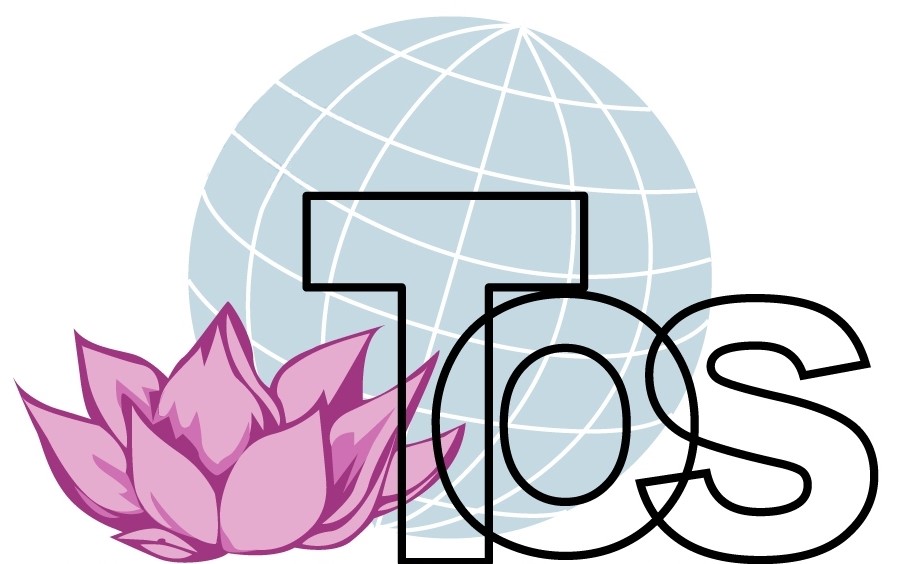Mahatma Gandhi : In Tune With The Infinite
General Topics:
by Rene Wadlow
Kathryn Tidrich has written an interesting new biography of Mahatma Gandhi: Gandhi. A Political and Spiritual Life(London: I.B. Tauris, 2006, 380 pp.) which will be reviewed separately in the Book Review section.
Tidrich puts the accent on the spiritual and intellectual contacts that Gandhi had when a law student in London and in his years as a lawyer-non-violent activist in South Africa. She highlights the friendship with Edward Maitland and Gandhi’s connections with the Esoteric Christian Union founded by Anna Kingsford and Maitland in 1891. For the year 1883, Kingsford was president and Maitland vice-president of the London Lodge of the Theosophical Society. It is probably Maitland who introduced Gandhi to the writings of the American New Thought writer Ralph Waldo Trine.
It is from Trine’s writings that Gandhi received the term “soul power or soul force “ – the term Gandhi used as a translation into English of the Indian term satyagraha. Satyagraha is more often translated today by the term non-violence, but there was already in use in India the term ahimsa— a meaning non and hinsa, violence. Gandhi wanted another term that was more active, and he took from Trine the term soul force.
Tidrich writes of the “now forgotten Ralph Waldo Trine” but since I have two of Trine’s chief books on my shelf, I will write two brief essays on Trine’s contribution to the thought and practice of Mahatma Gandhi — here on soul force and the power of thought drawing on Trine’s In Tune With the Infinite or Fullness of Peace, Power, and Plenty (New York: Whitcombe and Tombs, 1899, 175pp) and a follos up essay on Trine’s political and social ideals from his In The Fire of the Heart.
As Kathryn Tidrich notes,
"All Trine’s books contained the same message: spiritual power – also termed ‘thought power’ and ‘soul power’ – could be acquired by making oneself one with God, who was immanent, through love and service to one’s fellow men …The Christ he followed was one familiar to Gandhi — the supreme spiritual exemplar who showed men the way to union with the divine essence. Trine promised that the true seeker, fearless and forgetful of self-interest, will be so filled with the power of God working through him that ‘as he goes here and there, he can continually send out influences of the most potent and powerful nature that will reach the uttermost parts of the world.’
“Gandhi seems to have remained interested in Trine. He read his My Philosophy and My Religion (1921) in Yeravda jail in 1923, and in 1933, as he recovered from his 21-day fast for self-purification, he observed that the fast had sprung from ‘ a yearning of the soul to merge in the divine essence. How far I have succeeded, how far I am in tune with the Infinite, I do not know.’ In Tune with the Infinite was the title of Trine’s best known book.
For Trine, thought was the way that a person came into tune with the Infinite:
“Each is building his own world. We both build from within and we attract from without. Thought is the force with which we build, for thoughts are forces. Like builds like and like attracts like. In the degree that thought is spiritualized does it become more subtle and powerful in its workings. This spiritualizing is in accordance with law and is within the power of all.
“Everything is first worked out in the unseen before it is manifested in the seen, in the ideal before it is realized in the real, in the spiritual before it shows forth in the material. The realm of the unseen is the realm of cause. The realm of the seen is the realm of effect. The naure of effect is always determined and conditioned by the nature of its cause.
“The great central fact in human life is coming into a conscious vital realization of our oneness with this infinite Life, and the opening of ourselves fully to this divine inflow. In just the degree that we come into a conscious realization of our oneness with the Infinite Life, and open ourselves to this divine inflow, do we actualize in ourselves the qualities and powers of the Infinite Life, do we make ourselves channels through which the Infinite Intelligence and Power can work. In just the degree in which you realize your oneness with the Infinite Spirit, you will exchange disease for ease, inharmony for harmony, suffering and pain for abounding health and strength.”
Another theme which Trine stressed and which Gandhi constantly used in his efforts to build bridges between Hindu and Muslims in India was the basic principle of all religions:
“There is a golden threat that runs through every religion in the world. There is a golden thread that runs through the lives and the teachings of all the prophets, seers, sages, and saviours in the world’s history, through the lives of all men and women of truly great and lasting power…The great central fact of the universe is that the spirit of infinite life and power is back of all, manifests itself in and through all. This spirit of infinite life and power that is back of all is what I call God. I care not what term you may use, be it Kindly Light, Providence, the Over-Soul, Omnipotence or whatever term may be most convenient, so long as we are agreed in regard to the great central fact itself.”
Ralph Waldo Trine was a New Englander, and his parents named him after Emerson, but his thought had an impact on Gandhi’s social movements, first in South Africa and then India, and through Gandhi’s soul-force has spread to many parts of the world. Trine is worth re-discovering.
